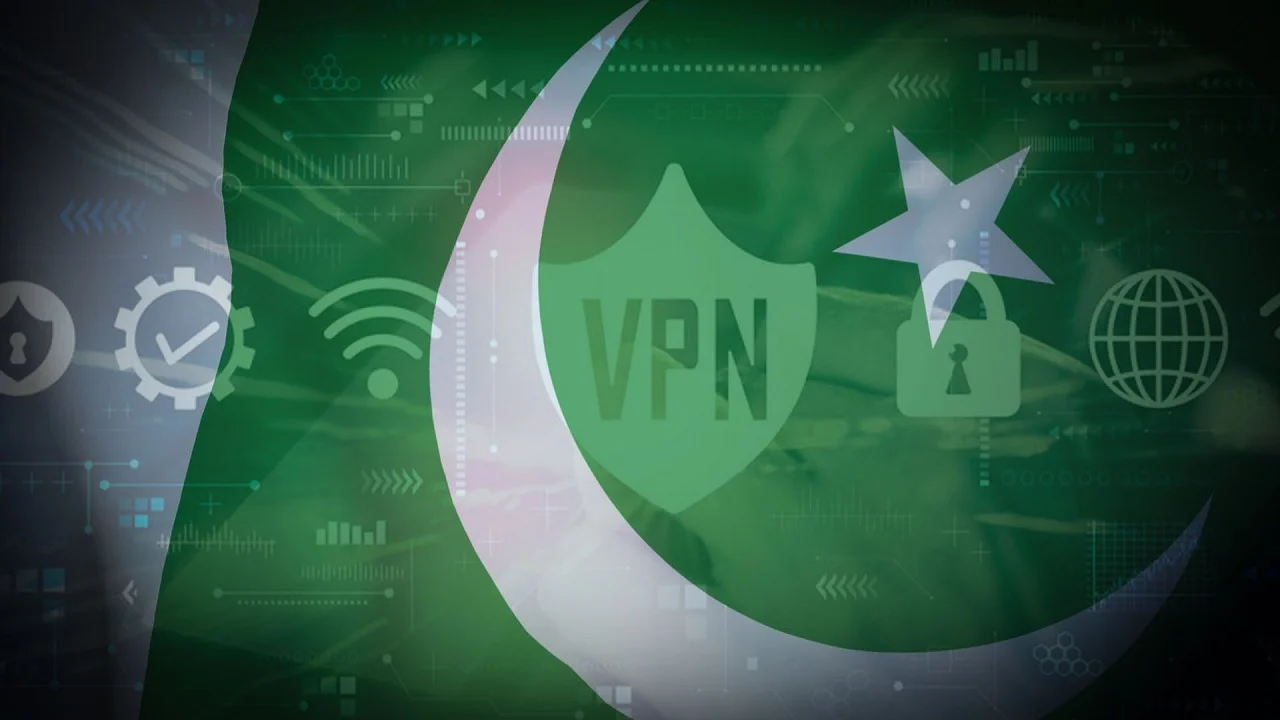Introduction to VPN Usage and Pakistan’s Regulatory Challenges
In an era where the internet is essential for communication, work, and recreation, Virtual Private Networks (VPNs) have become a critical tool for online privacy. VPNs encrypt users’ internet traffic and mask their IP addresses, providing a layer of anonymity that protects against surveillance and unauthorized data collection. For millions of users globally, VPNs are vital for bypassing geographical restrictions, protecting personal data, and ensuring safe online browsing.
However, VPNs also present challenges for governments, particularly when it comes to security and control. In Pakistan, the government has rolled out new regulations aimed at controlling VPN services. This regulatory shift, introduced by the Pakistan Telecommunication Authority (PTA), requires VPN providers to register with the authority and comply with specific laws, allowing the government to monitor VPN traffic more closely. While the PTA’s new licensing system is presented as a security measure, it has sparked debates about privacy, business operations, and the future of internet freedom in the country.
Understanding Pakistan’s New VPN Rules
H2: The Licensing System
Under the PTA’s new strategy, VPN providers must now obtain a license to operate within Pakistan. The licensing costs vary: Rs300,000 for nationwide coverage or Rs100,000 for provincial coverage. These licenses, which are valid for 15 years, come with a significant caveat. The licensed VPN providers are required to install “Lawful Interception” (LI) equipment, allowing government agencies to access user data and monitor VPN traffic when necessary.
The PTA asserts that these regulations are essential for national security, especially in the context of combating illegal online activities. While this approach may help enforce law and order, it raises significant concerns about privacy and individual rights.
H3: Monitoring and Surveillance
The core feature of the new licensing system is its emphasis on surveillance. Licensed VPN providers will be subject to monitoring by security agencies, who can access users’ data when required. This shift contradicts the very reason many people use VPNs – to maintain online anonymity. For businesses and individual users who prioritize security and confidentiality, this move may undermine trust in VPN services.
H2: The Impact on General Users
H3: Privacy Concerns
For everyday internet users, the use of a VPN is often seen as a safeguard for online privacy. VPNs protect personal information from being exposed to third parties, including government agencies, advertisers, and hackers. With the new regulations, users may feel their privacy is compromised as they are now subject to government oversight.
The introduction of lawful interception equipment gives the government the ability to monitor VPN traffic, raising concerns about how personal data will be used. For many, this could lead to reluctance in using VPN services altogether, limiting their ability to browse securely and privately online.
H3: The Freelancer and IT Sector’s Struggles
Pakistan’s IT sector and freelancing community, which includes millions of individuals working in digital industries, heavily rely on VPNs to access international platforms, collaborate with global clients, and bypass internet censorship. These workers often use VPNs to ensure they can work without interruptions, access content not available in Pakistan, and maintain a level of security for their communications.
The new licensing regime, which introduces additional bureaucratic hurdles, could negatively impact the freelance economy. The Pakistan Software Houses Association (P@SHA) has voiced concerns that the new regulations could lead to losses of up to $300 million due to disruptions in internet services. This could make it harder for freelancers to remain competitive in the global market.
H3: Potential Roadblocks for Businesses
H4: International Companies’ Hesitation
For multinational businesses, especially banks and IT firms, Pakistan’s new VPN regulations could raise concerns about data security. These businesses often require secure and private online channels to protect sensitive information and avoid potential data breaches. The presence of surveillance systems and government access to VPN traffic may discourage foreign firms from using VPNs licensed in Pakistan, fearing that their proprietary data might be compromised.
This hesitance could harm Pakistan’s economic growth, as businesses may opt to work with companies in countries where data security laws are more stringent and less intrusive. As a result, Pakistan might lose out on digital business opportunities, which are vital for the country’s economic development.
H2: Business Implications
H3: Risk of Unregulated VPN Usage
The government’s attempt to control VPN traffic could lead to an unintended consequence: users turning to unregulated or offshore VPN providers that do not comply with Pakistani laws. These VPN services could become more popular as people seek alternatives that preserve their anonymity and privacy. Unfortunately, this could exacerbate the problem of unmonitored internet usage, which the PTA hopes to eliminate.
Instead of solving the issue, the new regulations may push more people toward using illicit VPN services that are outside the reach of the government. This would mean that the PTA’s surveillance mechanisms would be ineffective, as users would simply find workarounds.
H3: Government Overreach: A Misguided Strategy?
The debate surrounding the PTA’s new VPN rules raises an important question: Are these regulations too heavy-handed? While the government’s intention to control illegal online activities and maintain national security is understandable, the practical implications of these rules may do more harm than good.
The new licensing regime may undermine the core principles of the internet – open access, privacy, and freedom of expression. In the digital age, these values are crucial for innovation, business, and personal freedom. By introducing invasive surveillance measures, the government risks stifling innovation and creating an environment of distrust among users.
H2: The Global Context: VPN Regulations Around the World
H3: International Precedents
Pakistan’s decision to regulate VPNs aligns with a growing global trend of governments attempting to control internet usage. Countries like China, Russia, and the UAE have implemented strict internet censorship measures and surveillance programs, targeting VPNs to monitor citizens’ online activities. However, these measures have often been criticized for infringing upon personal freedoms and violating privacy rights.
In contrast, some countries have adopted more balanced approaches, acknowledging the importance of both security and privacy. A middle-ground strategy could allow governments to maintain oversight while protecting citizens’ online freedoms.
H2: A Path Forward: Balancing Security with Privacy
H3: Finding the Right Balance
For Pakistan, finding a balance between national security and individual privacy will be crucial. The PTA must ensure that its efforts to regulate VPN services do not stifle the digital economy or violate citizens’ rights. Collaboration with stakeholders, including the IT sector, businesses, and civil society, will be essential in creating a policy that respects privacy while ensuring national security.
Pakistan could benefit from fostering transparency, improving communication about the regulation’s goals, and ensuring data protection practices are strictly adhered to. A well-implemented framework that incorporates both security concerns and user privacy would enable Pakistan to safeguard its digital landscape while promoting a thriving online ecosystem.
FAQs
- What is a VPN and why is it used? A VPN (Virtual Private Network) is a tool that encrypts a user’s internet connection, ensuring their online activities remain private and secure. It is often used to access geo-blocked content, protect sensitive data, and maintain anonymity online.
- How will the new VPN licensing regulations impact privacy? The new regulations grant the government the ability to monitor VPN traffic, which may compromise user privacy, especially for individuals who rely on VPNs for secure communication and anonymous browsing.
- What does the PTA hope to achieve with these new rules? The PTA’s objective is to curb illegal online activities and enhance national security by regulating VPN providers and ensuring compliance with Pakistan’s telecommunication laws.
- How might businesses be affected by the new VPN rules? Businesses, especially international firms, may hesitate to use licensed VPN services due to concerns about data security and government surveillance, potentially impacting foreign investment and digital business adoption.
- Can users still access unregulated VPNs in Pakistan? Yes, users can still turn to unregulated or offshore VPN services, though these might expose them to greater risks and vulnerabilities, defeating the purpose of the government’s surveillance efforts.
Conclusion: Navigating the Digital Landscape
Pakistan’s new VPN regulations highlight the complex relationship between security, privacy, and internet freedom. While the government’s intentions are rooted in safeguarding national interests, it must also consider the broader consequences of its actions on users, businesses, and the digital economy. As this issue unfolds, it will be essential to monitor the impact of these regulations and assess whether they strike the right balance between control and freedom.
ALSO READ
https://flarenews.pk/2024/12/24/pakistans-new-undersea-cable-to-enhance-internet-speed/



